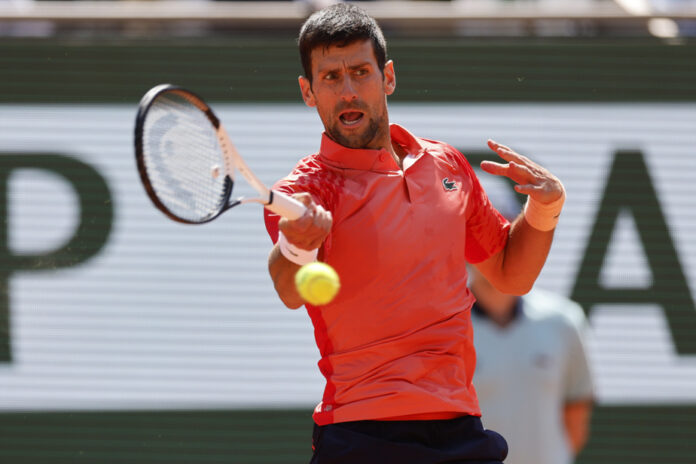(Paris) The Serbian Novak Djokovic, author of an “inappropriate” message on the current tensions in Kosovo according to the French Minister of Sports Amélie Oudéa-Castéra, was not blamed by the International Federation (ITF) for that “political statements” are not prohibited.
Serbian Novak Djokovic’s message after his first match at Roland Garros on the current tensions in Kosovo was “not appropriate” and “it must not start again”, warned Amélie Oudéa-Castéra on Wednesday.
On Monday, Novak Djokovic, whose father was born in Kosovo, wrote on camera: “Kosovo is the heart of Serbia. Stop the violence”.
A “militant”, “very political” message, judged the minister on France 2, which intervened at the time of an outbreak of violence in northern Kosovo involving protesters from the Serbian minority and the NATO force who is stationed there.
This violence left about thirty injured among the international soldiers and about fifty among the Serb protesters, who, with the support of Belgrade, refuse to recognize the authority of the Pristina government over the former Serbian province.
Gilles Moretton, president of the French Tennis Federation, clarified the position of the tournament leaders: “When they are at a press conference, we are not going to sanitize the personality of the players. They have the right to express themselves in any area, on the other hand, on the field, we actually wanted the players not to have a political position, ”he said.
“We talked a lot with Djokovic’s entourage and it must not happen again”, he added, “there is no sanction for the moment because we know that he is in emotion, we know it’s something that, for his family, touches him”.
The Roland-Garros ethics charter prohibits political or religious positions.
Conversely, the ITF stressed on Wednesday that “political statements” by players were not prohibited.
“The rules of conduct for players at a Grand Slam tournament are defined by the Grand Slam regulations, issued by the organizer and the regulator concerned. There is no provision in these regulations prohibiting political statements” by players, the ITF told AFP.
Ms. Oudéa-Castera, invited to comment on the expression of political positions during this Grand Slam tournament, such as those of Ukrainian athletes since the Russian invasion of their country, stressed that she did not put “the two subjects on the same plan “.
“When we carry messages that are in defense of human rights, messages that bring people together around universal values, an athlete is free to do so,” she said. But not, according to her, when it comes to an “militant, very political” message like that of the Serbian player.
On Sunday, Ukrainian Marta Kostyuk did not greet Belarusian Aryna Sabalenka after their match, which earned her whistles from the Roland-Garros public. She intended to protest against the response, according to her too timid, given by the tennis authorities to the invasion of Ukraine by Russia, and to denounce the fact that Sabalenka does not take a position on this invasion.
“We can understand” the gesture of the young Ukrainian, “even if we would like there to always be fair play until the end, to shake hands, there is a pain that is there, which I respect” added the minister.
The next day, after his match won against the American Aleksandar Kovacevic 6-3, 6-2, 7-6 (7/1), Novak Djokovic, armed with his marker, wrote his message in Cyrillic on the court camera Philippe Chatrier.
The player, in search of his 23rd Grand Slam at Roland-Garros, which would be a historic record, justified himself at a press conference in front of Serbian journalists. “It’s a sensitive subject,” he acknowledged. I feel an additional responsibility as a public figure and as the son of a man born in Kosovo to support all the Serbian people. It’s the least I can do. I am not a politician and I have no intention of engaging in a debate. »
Many Serbs consider Kosovo their national and religious cradle and a minority still live there.















